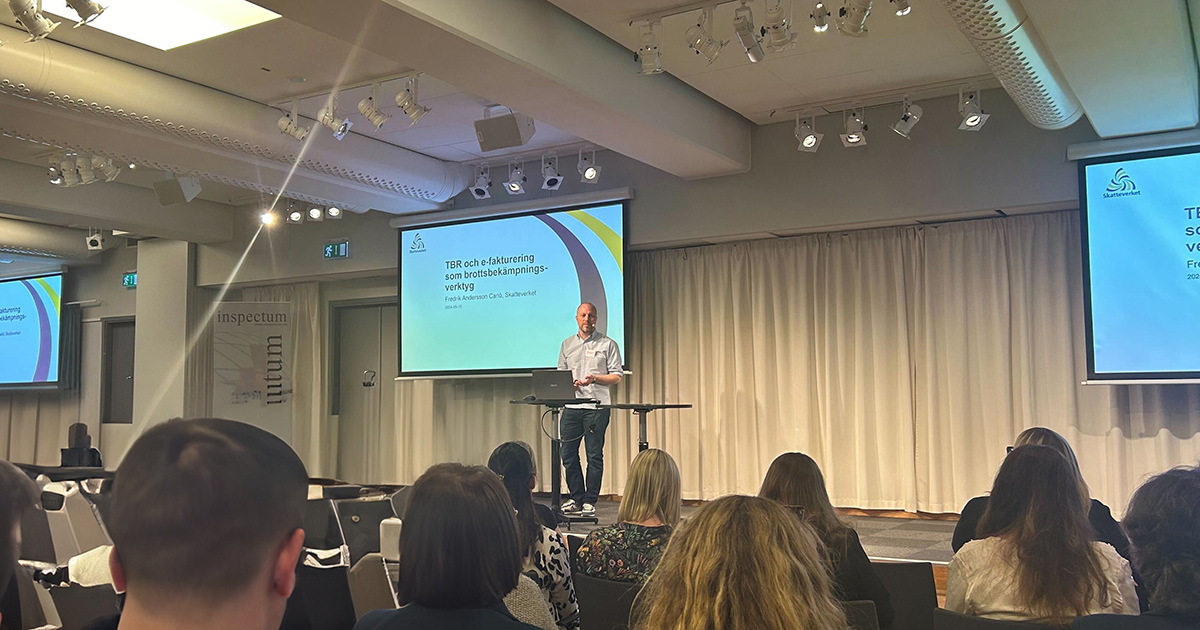We talk ViDA with Fredrik at the Swedish Tax Agency - part 1

In five years' time, all cross-border transactions within the EU will be carried out using electronic invoices and the associated tax reporting will be automatic.
Sweden must have a functioning system in place by then. Otherwise, we will be in breach of the EU directive that we helped to approve.
How is the work going? We've reached out to Fredrik Andersson Carlö, theme leader for transaction-based reporting at the Swedish Tax Agency, for an update on Sweden's ViDA perspective and how the agency he represents views this regulation, its implementation and intended effects.
EU countries have decided that the VAT Directive should be adapted for today's digital technology and conditions. The reform, which is a larger package of measures, is called ViDA (VAT in the Digital Age) and will be implemented in stages. Fredrik Andersson Carlö is the theme leader for an implementation project at the Swedish Tax Agency that concerns the most comprehensive part of ViDA called Digital Reporting Requirements or DRR. He leads the group that bears the overall responsibility at the agency when the implementation of ViDA DRR is to be carried out.
Ultimately, the government decides, and it is the Ministry of Finance that ensures that their decisions are put into action, but through Fredrik's central position at the Swedish Tax Agency regarding ViDA, he naturally keeps up to date and closely follows what is happening.
Inexchange has done a longer interview with Fredrik that we choose to divide into two articles. There are many questions and even more interesting answers.
Beneficial reform
In part 1, we focus on ViDA itself, on ongoing preparations and the elements required for it to work as intended.
What is the Tax Agency's general view of the ViDA package?
"We are positive about this and so are we as a country. We have voted for ViDA. Our responsible ministers said that it was good when they voted it through, but I will not speak for them. From the Swedish Tax Agency's side, we are positive in any case."
"We also make no secret of the fact that the main reason we like ViDA is that it enables transaction-based reporting in a way that is significantly less costly for companies. Then it is good because it is a step towards digitalization. Invoice processing itself is digitized thanks to these new rules. It streamlines invoice processing and saves businesses time. It also opens the door to other types of digitization. For example, we are considering the possibility of using this approach to manage communication between public authorities and businesses."
According to the implementation plan, EU countries were required to respond by January 25 to the working document on the content of ViDA presented by the European Commission. Do you know if Sweden responded and if so, what were our views?
"No, I do not know. What I do know, but it is perhaps something completely different, is that Sweden expressed a positive attitude to this when it gave its approval, but it did so already in May when the first compromise proposal was presented and vetoed by Estonia. I have not heard anything further beyond that, which does not necessarily mean that nothing has been said. But I am not aware of what would have been said in such cases."


